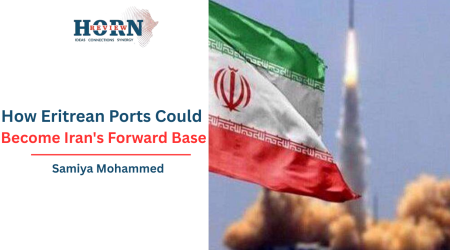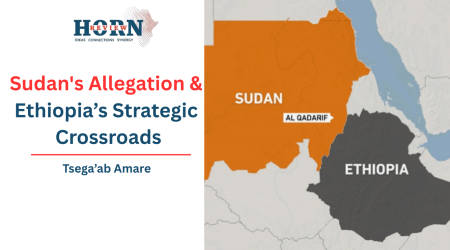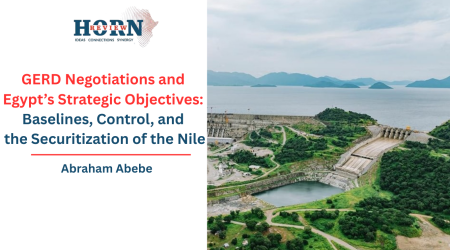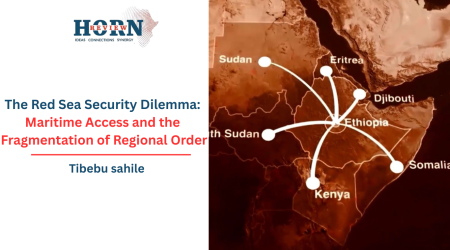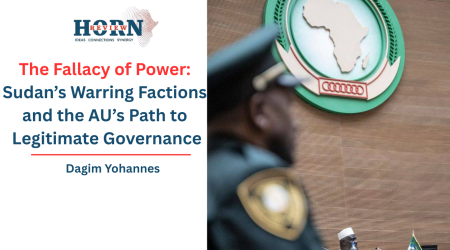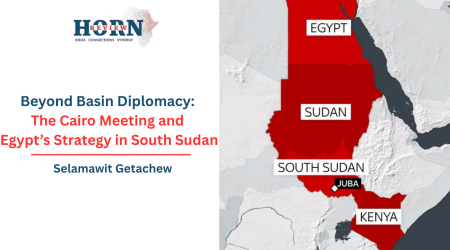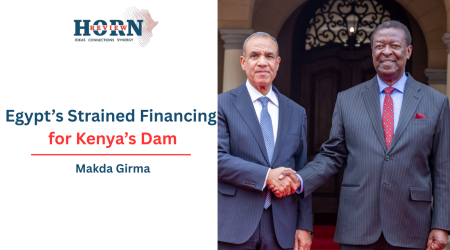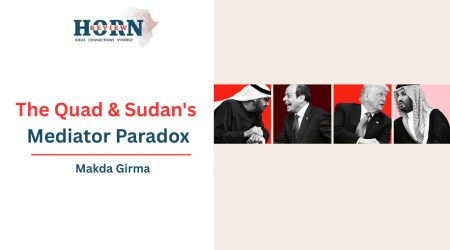
21
Nov
The Hala’ib Triangle: Egypt, Sudan and the Strategic Golden Coast
Sudan’s relation with its borders has always been in a tragic pattern: indifference towards the land it rightly owns and aggression towards the land it does not. Nowhere is this contradiction more visible than in the Halaib Triangle, a 20,580-square-kilometer coastal territory that history, law, and colonial mapping placed squarely under Sudanese sovereignty only for Sudan to slowly, almost willingly, let Egypt occupy, administer and absorb it. Sudan did not lose Halaib through military defeat or overwhelming force; it lost it through paralysis, elite fear, and a long tradition of political subordination that continues to shape its foreign-policy instincts.
Halaib is far from an empty desert; it is one of Sudan’s most strategically and economically valuable territories. Covering over 20,000 square kilometers along the Red Sea, it provides critical access to deep-water ports, natural anchorages, and strategic maritime routes essential for trade and regional influence. The region is rich in minerals, including manganese deposits, and holds high potential for offshore oil and gas exploration, making it an indispensable asset for any state seeking influence along the Red Sea corridor. Its economic and strategic significance makes Sudan’s failure to assert sovereignty a self-inflicted loss with profound long-term consequences, far beyond the simple ceding of territory.
Fear of Egypt made Sudan abandon the very territory that defined its sovereign coastline. Despite Gamal Abdel Nasser’s rhetoric of a “sisterhood” relationship between Egypt and Sudan, the reality was always hierarchical: Egypt behaved like the senior partner, almost a political “mother” while Sudan accepted the subordinate role. This psychological hierarchy shaped Khartoum’s foreign-policy instincts. Even when Cairo spoke of equality, its actions projected dominance; and even when Sudan spoke of sovereignty, its actions reflected fear. The result is a tragic pattern: Sudan retreats where Egypt advances.
Egypt paved roads, built schools, established police forces, and integrated Halaib into its administrative system, while Sudan’s political class fragmented into internal wars, coups, and factional rivalries. In this vacuum, Egypt’s old imperial reflex-to treat Sudan as its strategic backyard-reasserted itself without resistance. Sudan’s elites never mounted the legal, diplomatic or administrative defense necessary to preserve a territory that international law clearly placed under their sovereignty. Cairo did not need to wage a war or launch a campaign; it only needed to fill the political space Sudan abandoned.
The historical record could not be clearer. The 1899 Anglo-Egyptian Condominium set the political border at the 22nd parallel, placing Halaib inside Sudan. The 1902 administrative adjustment temporarily gave Egypt civil authority for tribal convenience but did nothing to transfer sovereignty. At Sudan’s independence in 1956, Cairo did not dispute Khartoum’s title; Egypt’s claim emerged only later, shielded by Sudan’s deepening political weakness.
That weakness set and hardened into crisis in the mid-1990s. After Egypt accused Sudan of involvement in the 1995 Addis Ababa assassination attempt on Hosni Mubarak, Egyptian forces entered Halaib and expelled Sudanese administrators. This should have been Sudan’s moment of national awakening. A responsible state would then have taken the dispute to arbitration, rallied regional support, invested in its Red Sea frontier, and asserted its rights through diplomacy and law. Instead, Sudan did nothing. No military response, no legal challenge, no sustained diplomatic campaign-only silence and retreat. Egypt, facing no resistance, entrenched itself.
The consequences were profound: Egypt now issues IDs in Halaib, runs the schools, manages the ports, licenses offshore oil blocks, and provides the only functioning state presence. Everything, from telecom networks to policing and taxation to service delivery, is Egyptian. The Beja-who for years have been culturally and historically linked to Sudan-increasingly look to Cairo, not Khartoum, as a source of stability and opportunity. Then, in 2025, Sudan’s Sovereign Council effectively ordered state bodies to treat Halaib as Egyptian territory-a quiet surrender, sans debate or oversight or public explanation.
What Sudan gave up in Halaib was not just land; it was its last strategic coastline with depth after the secession of South Sudan. It was an opportunity to rebuild the national economy after losing 75 percent of its oil revenue in 2011. It was its access to the Red Sea that could have anchored Sudan’s economic and geopolitical future. Instead, Sudan ceded that potential through neglect.
This tragedy becomes even sharper when juxtaposed with Sudan’s conduct toward Ethiopia in al-Fashaga. Where Sudan refused to defend a territory legally and historically its own, it aggressively seized land in Ethiopia that it has no legitimate claim to. Sudan’s 2020-2021 occupation of al-Fashaga was a unilateral military act. Legally, it is indefensible. The 1902 and 1907 treaties place the area inside Ethiopia; Ethiopian farmers and administrators have been present for over a century; and the principle of uti possidetis juris, which Sudan selectively cites, supports Ethiopia’s position. Yet Sudanese elites portrayed their occupation as a patriotic conquest, even though al-Fashaga never belonged to Sudan.
This contradiction reveals a deeper political pathology: Sudan confronts Ethiopia precisely because it perceives Ethiopia as the safer adversary. Yet with Egypt-militarily stronger, diplomatically influential, and historically dominant-Sudan retreats, negotiates defensively, and accepts outcomes that no sovereign state should tolerate. The hierarchical relationship established under Nasser, reinforced under Sadat and Mubarak, and exploited under Sisi still shapes Sudan’s strategic imagination. Sudan’s rulers internalized Egypt’s old imperial posture, trading obedience and territorial concessions for political survival. Halaib is the clearest casualty of this submissive instinct.
If Sudan had defended Halaib with even a fraction of the energy it devoted to seizing Ethiopian farmland, the strategic map of the Red Sea would look entirely different. Instead, Sudan now lives with the consequences of its own fear. It lost a coastline rich in minerals and hydrocarbons, with maritime potential. It lost its ability to influence Red Sea politics. It lost economic alternatives after 2011. And it lost the trust of the Beja, who now look northward for a future that Khartoum never offered.
No foreign power imposed these losses. Sudan’s leaders imposed them on Sudan.The story of Halaib is not one of external domination but of internal decay. The problem with Sudan is that it keeps picking the wrong battles: ceding land where its claim is strongest while provoking conflict over land where its claim is weakest. It allows Egypt to consolidate a territory which international law grants to Sudan while occupying Ethiopian land that international law denies it. The problem is not Egyptian ambition; Egypt behaves as coherent states behave,assertive where resistance is weak. The problem is Sudan’s refusal to uphold the basic responsibilities of sovereignty.
A state that cannot defend its borders loses the respect of neighbors, the loyalty of its citizens, and eventually its identity. Today, Halaib stands as the physical proof that Sudan’s political and military elite have consistently chosen subordination over self-preservation. Sudanese presidents, prime ministers, and generals ,Bashir yesterday, Burhan and the Sovereign Council today did it to themselves. They lost Halaib through fear and neglect. And they occupy al-Fashaga because it is the one place where nationalist theater is cheap and the adversary is too busy to respond.
Egypt never had to conquer Halaib. It only had to wait for Sudan to forget it existed.Thirty years later, the surrender was almost complete. A coastline that could have replaced the oil wealth lost in 2011 has been erased from Sudan’s national ledger, handed over in exchange for a few drones, political cover, and the illusion of protection.
Until Sudan addresses its past of passivity, fear and strategic blindness, history will not cease repeating. Then, it will continue to shout at the borders it never owned but silently abandon the ones it had. The Red Sea will remember what Sudan’s leaders chose to forget: a nation that gives up its golden coast without a struggle will not keep what little remains.
By Bethelhem Fikru and Surafel Tesfaye, Researchers, Horn Review

